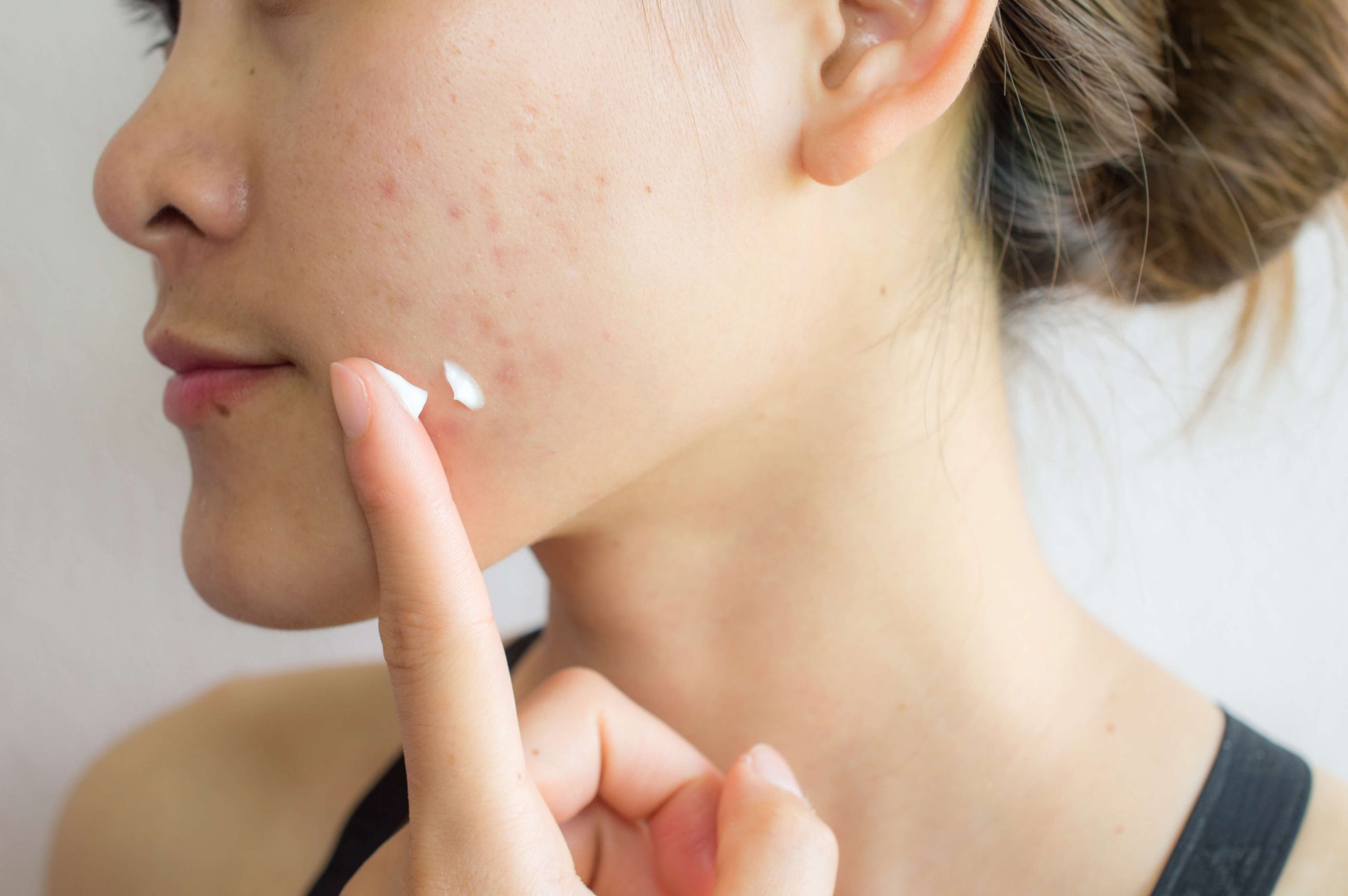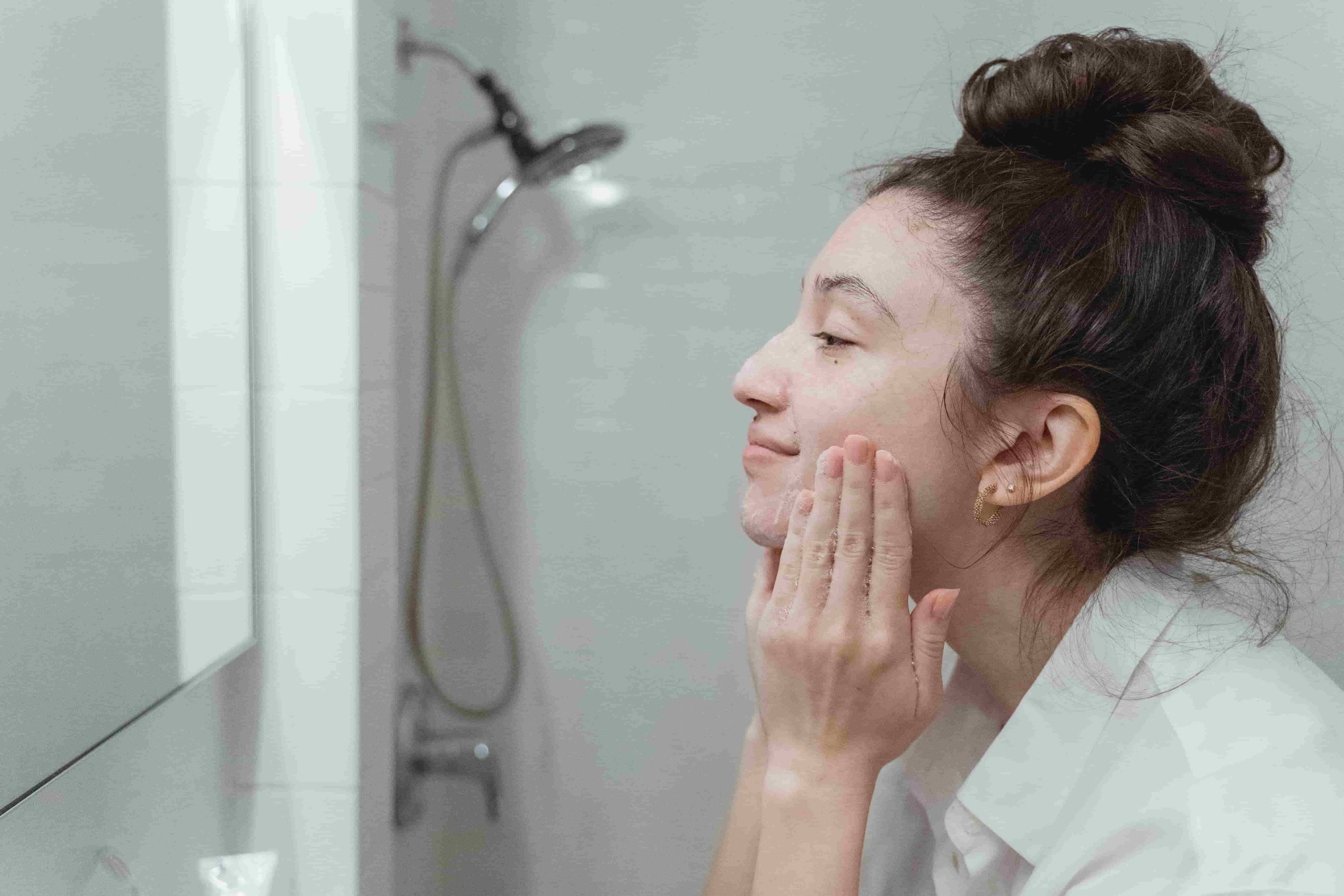
Medically Reviewed by Dr. Lee Hwee Chyen
MBBS MRCP (UK) FAMS (Dermatology)

Tretinoin is commonly used to treat a variety of skin conditions. It is a derivative of Vitamin A and is particularly effective in promoting skin renewal on a cellular level. Tretinoin creams and gels find their main use in the treatment of mild to moderate acne, but can also be used for anti-ageing, skin brightening, and hyperpigmentation treatment.
By stimulating the production of collagen and other components of the skin matrix, tretinoin can help to reduce the visibility of fine lines and wrinkles. This makes it a popular choice for ageing skin where the natural processes of collagen production may have slowed over time. An additional benefit is its capability to help the skin resist further degradation caused by external factors such as sun exposure and environmental pollutants. Numerous scientific studies have shown the ability of tretinoin to improve the appearance of photoaged skin significantly.
Tretinoin is also known for its efficacy in treating acne. It functions by promoting the turnover of skin cells and reducing the likelihood of pore blockage, which is a primary cause of acne. This influences the abnormal skin cell layering in follicles and prevents the formation of plugs or comedones that manifest as blackheads or whiteheads, making it particularly effective against forms of acne where comedones are prevalent.
It also exhibits anti-inflammatory properties, reducing redness and swelling linked to acne outbreaks. As such, tretinoin is routinely prescribed for those suffering from acne who have not had success with over-the-counter solutions. The cream works over time, and maximum results may not be observed until weeks or even months after beginning treatment. Continued use may be necessary to maintain the benefits.

By accelerating the turnover of skin cells, tretinoin can aid in exfoliating the uppermost layers of skin where dead cells may accumulate, resulting in dull-looking skin. Newer, fresher skin cells are brought to the surface giving the skin a brighter, more vibrant appearance. This also assists in reducing the impact of photo damage from sun exposure which often results in skin discolouration and uneven complexions.
Tretinoin cream can be beneficial in the treatment of hyperpigmentation. By stimulating the rapid turnover of skin cells, tretinoin can aid in lightening hyperpigmentation over time.
Longitudinal studies have demonstrated tretinoin’s efficacy in treating hyperpigmentation, particularly when used in combination with other lightening agents. Reducing hyperpigmentation may require sustained use of tretinoin, and results might not appear immediately.
Oily and acne-prone skin types may benefit the most, as tretinoin facilitates the unclogging of pores, regulates oil production, and counters acne-causing bacteria.
Individuals with dry to normal skin types may also use tretinoin, but they may experience more dryness, peeling, or skin irritation, particularly during the initial stages of usage.
The degree of skin sensitivity also plays a role in how well one might tolerate tretinoin. Individuals with sensitive skin may experience redness and irritation, but these side effects often lessen over time as the skin acclimates to the treatment.
Those with pigmented skin conditions such as melasma or post-inflammatory hyperpigmentation may specifically find tretinoin useful in managing skin discolouration, as the cream promotes skin cell turnover and aids in the effective lightening of pigmented areas. Consult with your dermatologist to ascertain the suitability of tretinoin for individual skin types and conditions.

The proper use of tretinoin cream can improve its effectiveness and minimise potential side effects. Here are some guidelines to follow.
Tretinoin can cause side effects, but not everyone experiences them. Common side effects with tretinoin are due to its action on the skin and primarily include the following,
Uncommon but more serious side effects might include severe burning or swelling, discolouration, and blistering on the skin. If any of these occur, stop usage immediately and seek medical attention.
Consult with a dermatologist before beginning any new skincare regimen, especially when it involves a potent product like tretinoin. Below are some additional tips:
Everyone’s skin is unique, and what works best for one person may not be best for another. Speak to an experienced dermatologist to learn more about tretinoin cream.
Topical Vitamin C serum can serve as a valuable addition to a skincare regimen, particularly in acne management. Read on to learn more about the benefits of topical Vitamin C serum for the skin and acne.
Acne is a skin condition that can be exacerbated by certain cosmetic ingredients. Understanding these ingredients can help prevent acne flare-ups and maintaining healthy skin. Read on to learn more.
Feel free to drop by our our clinic and meet our specialist
101 Irrawaddy Road #16-09
Royal Square at Novena, Singapore 329565
 +65 8701 7662 (WhatsApp Enquiries Only)
+65 8701 7662 (WhatsApp Enquiries Only)
Mon - Fri (09:00am - 05:30pm)
Sat (09:00am - 1:00pm)
Sun & Public Holidays (Closed)